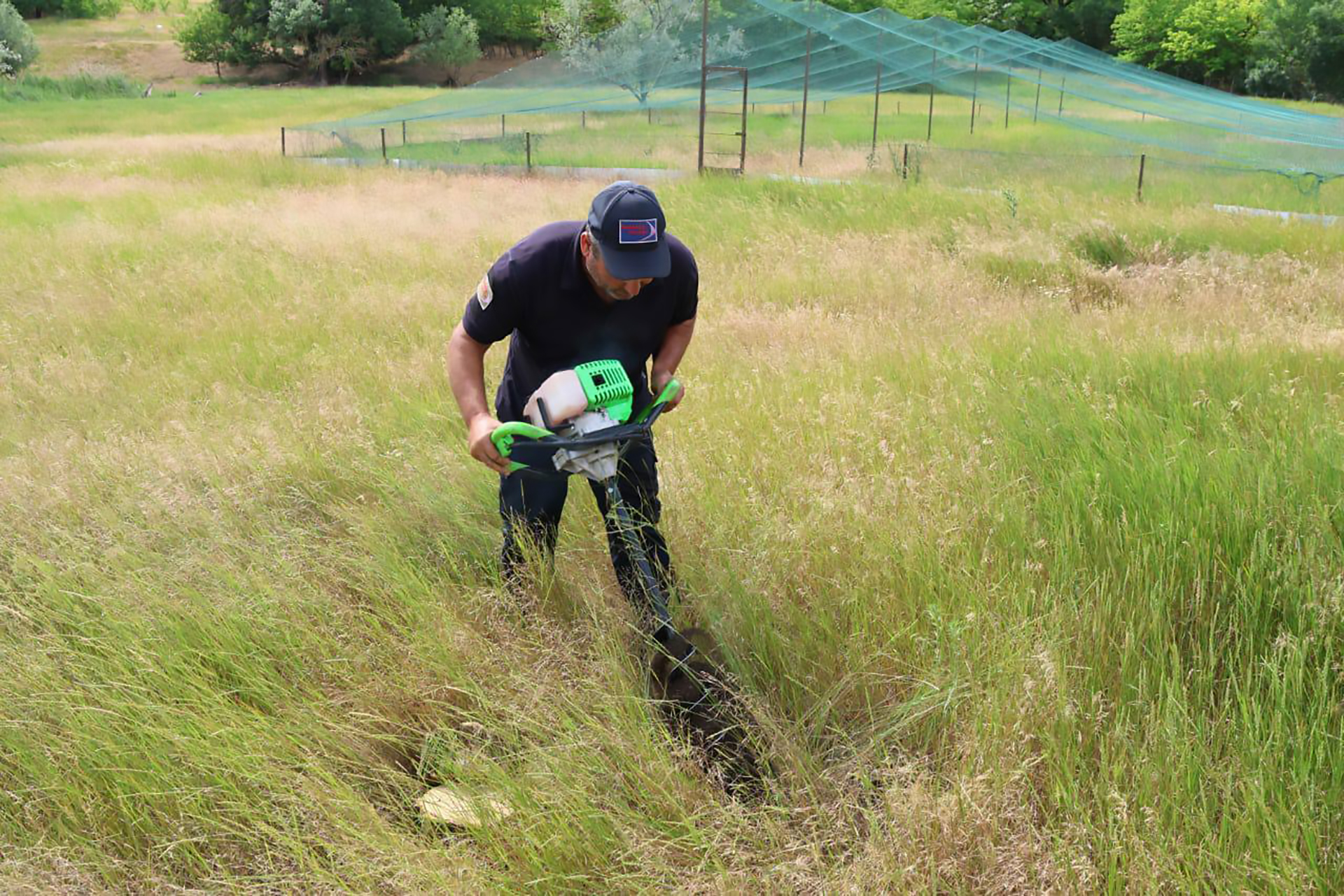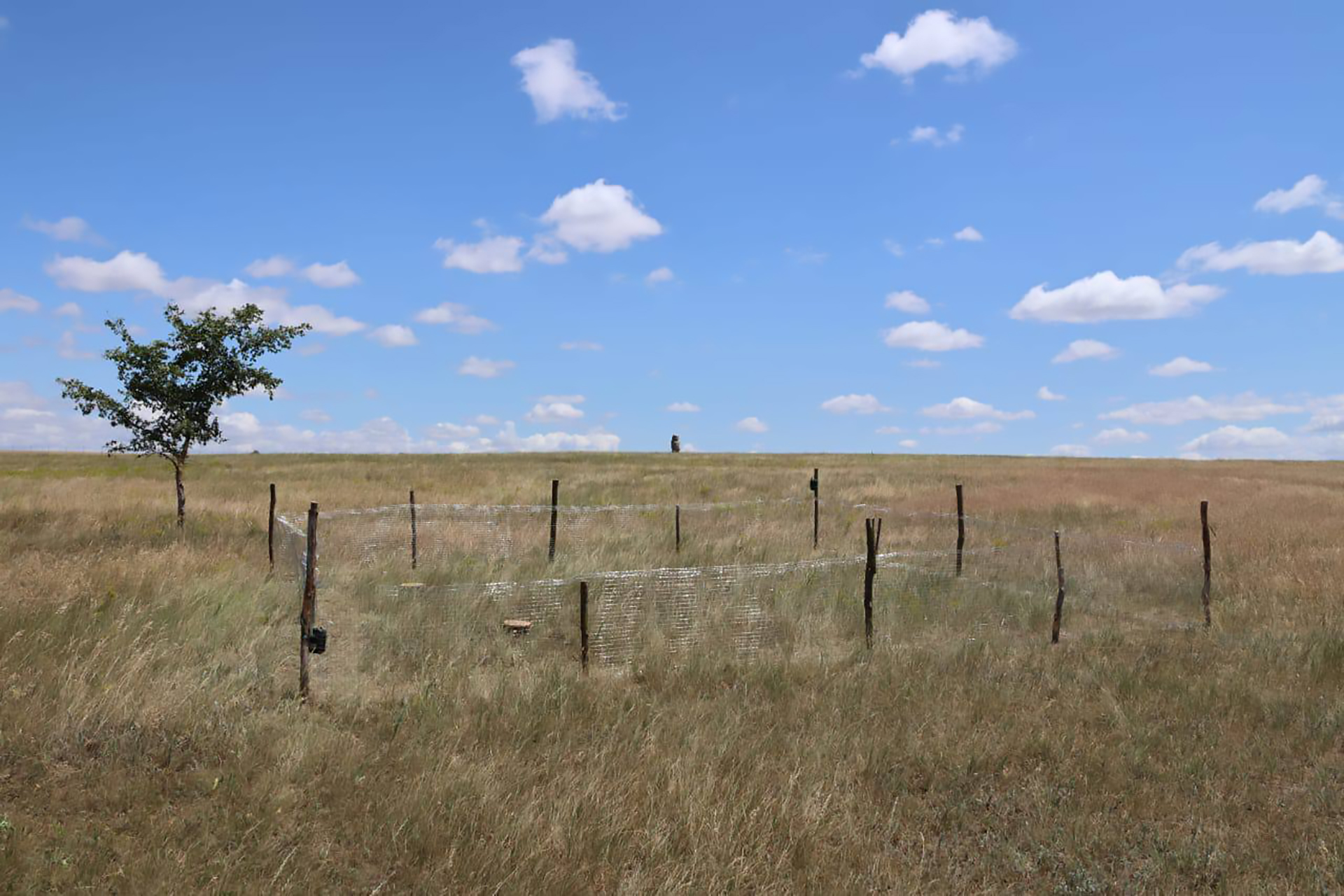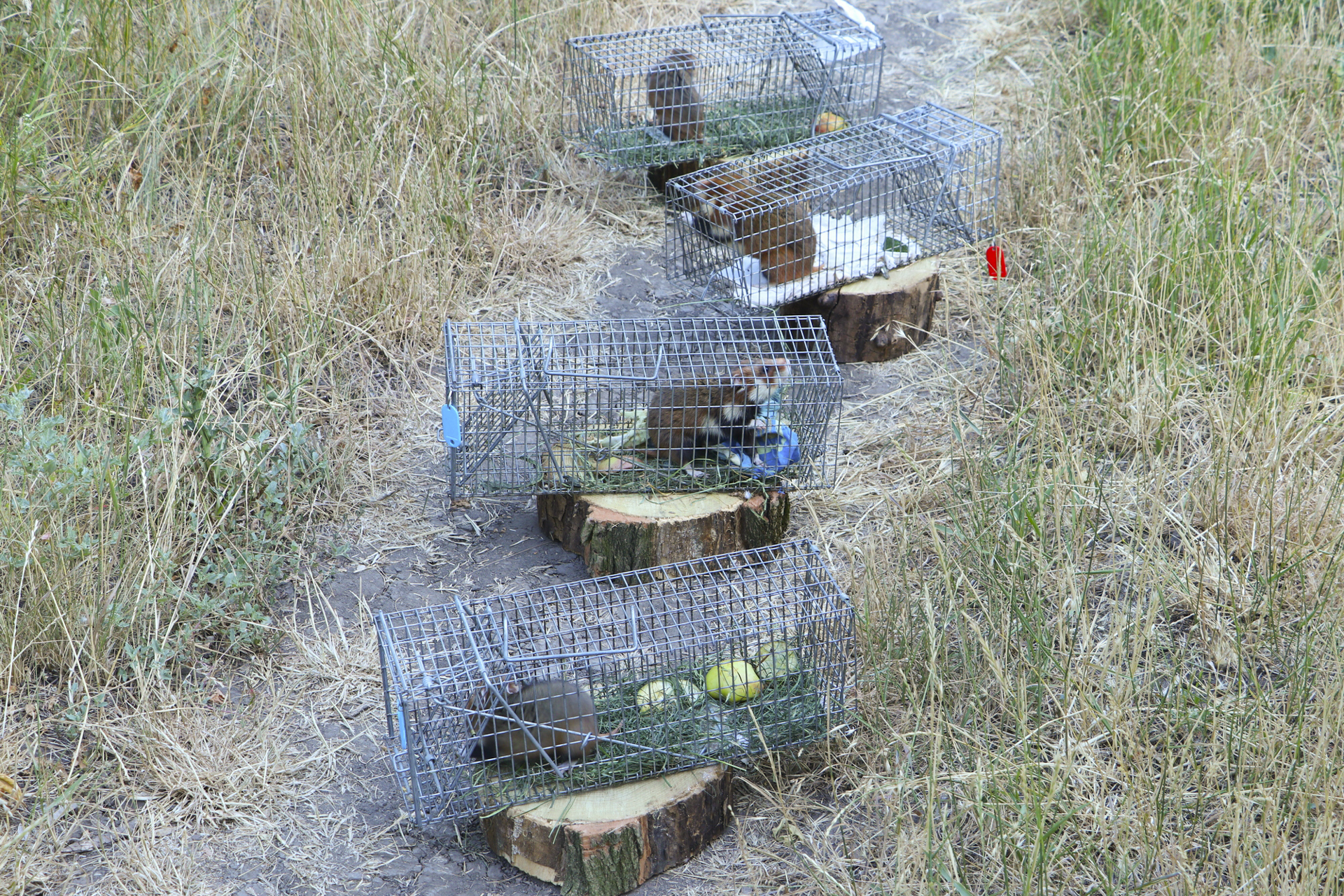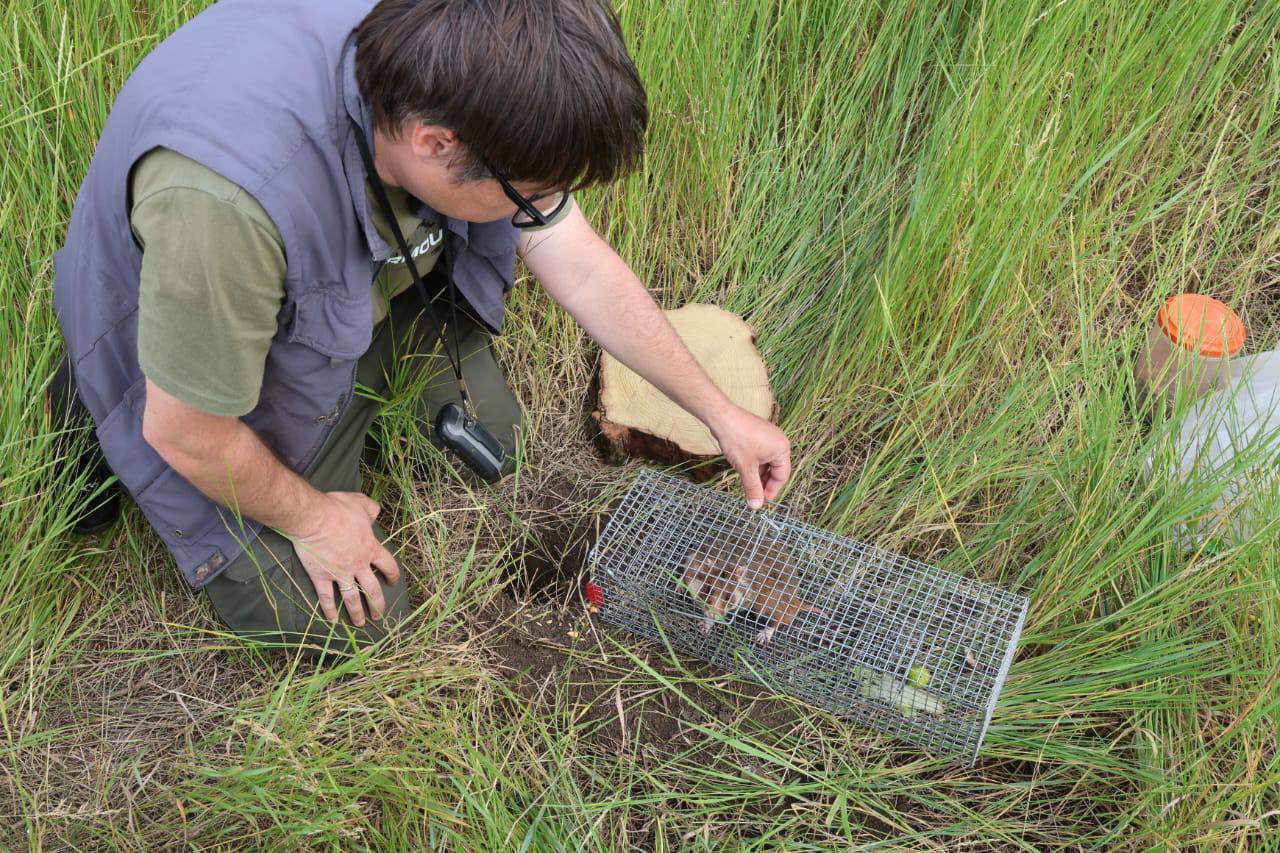The Rewilding Ukraine team are working to create a wilder and healthier Tarutino Steppe. The ongoing reintroduction of European hamsters is helping to breathe new life into this unique and vital European grassland.
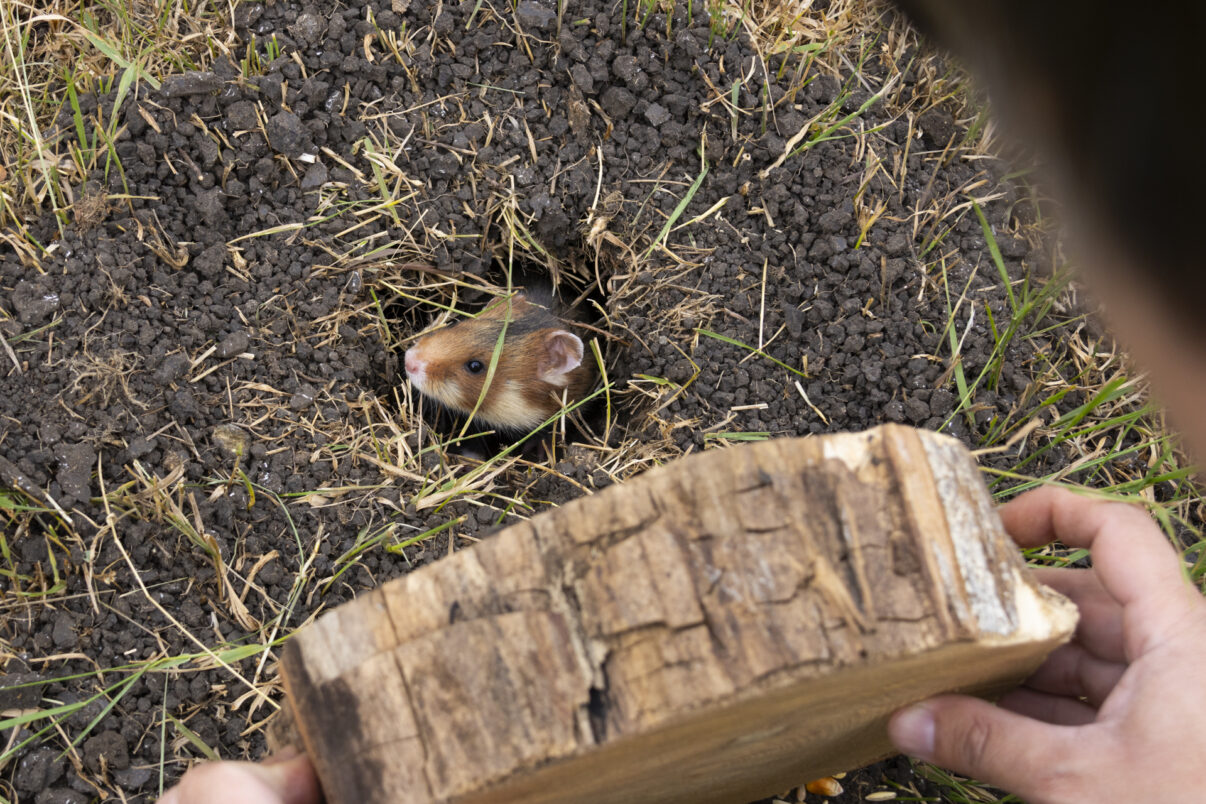
Advancing hamster comeback
The comeback of European hamsters on the Tarutino Steppe in southwestern Ukraine has received a boost this summer, with 37 animals released in early July. This is the largest release of hamsters since Rewilding Ukraine began a reintroduction programme here in 2022.
Including this year’s animals – which were released in two separate groups – nearly 70 hamsters have now been set free on the steppe, which is part of the extended Danube Delta rewilding landscape. Several more releases are planned in 2025. The hamster reintroduction programme on the Tarutino Steppe is being run in collaboration with Kyiv Zoo and the Tarutino Steppe Nature and Ethnographic Park, with this year’s releases also supported by the Hamster Rescue Centre.
The burgeoning presence of these diminutive rodents, which were once widespread across Ukraine, will contribute to the creation of a wilder and naturally healthier steppe landscape, helping to restore local food webs and enhance biodiversity, as well as boost nature-based tourism. The growth of such tourism will hopefully gain added momentum once the ongoing war with Russia comes to an end.
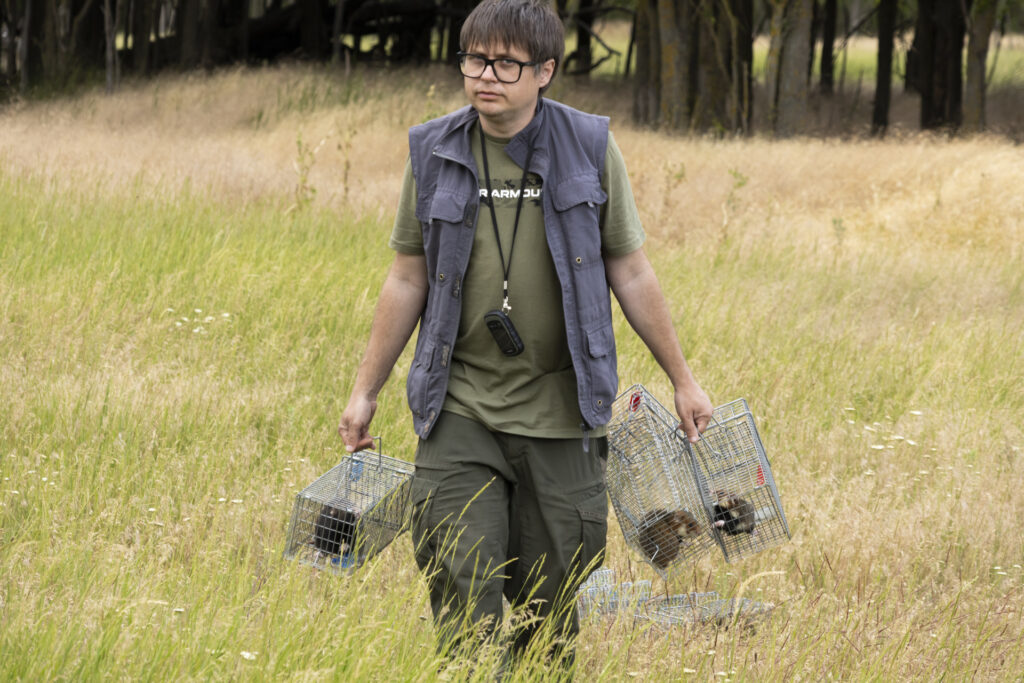
Contributing to a wilder steppe
Wild hamsters are quite large – they can reach up to 30 cm in length and weigh more than 500 g. Spending most of their time underground in burrows, they only venture out at dawn and dusk to feed mostly on plants. On the Tarutino Steppe they will help to disperse seeds, while their burrows will create habitats for many other wildlife species and improve soil fertility. The animals themselves are important prey for a range of birds and mammals.
Rewilding Ukraine’s hamster reintroduction programme is part of scaled up rewilding efforts in the Danube Delta rewilding landscape, which began at the start of 2019 with funding provided by the Endangered Landscapes & Seascape Programme, through Rewilding Europe. Hamsters are just one of a number of native herbivorous animals returned to the Tarutino Steppe by the Rewilding Ukraine team, with kulan (Asiatic ass), European fallow deer, and steppe marmot populations all doing well. The overarching aim of these efforts is to realise a wilder steppe governed more by natural processes, such as natural grazing and well-balanced and healthy predator-prey dynamics.
The Tarutino Steppe is one of the last and best preserved pieces of steppe left in Ukraine and Europe. Over the last few years, the Rewilding Ukraine team, in conjunction with the community of Borodino and the Department of Ecology of Odessa, have taken important steps towards the creation of the Budzhak Steppes National Natural Park – a new national park that would encompass the Tarutino Steppe and adjacent yet unconnected areas of steppe.
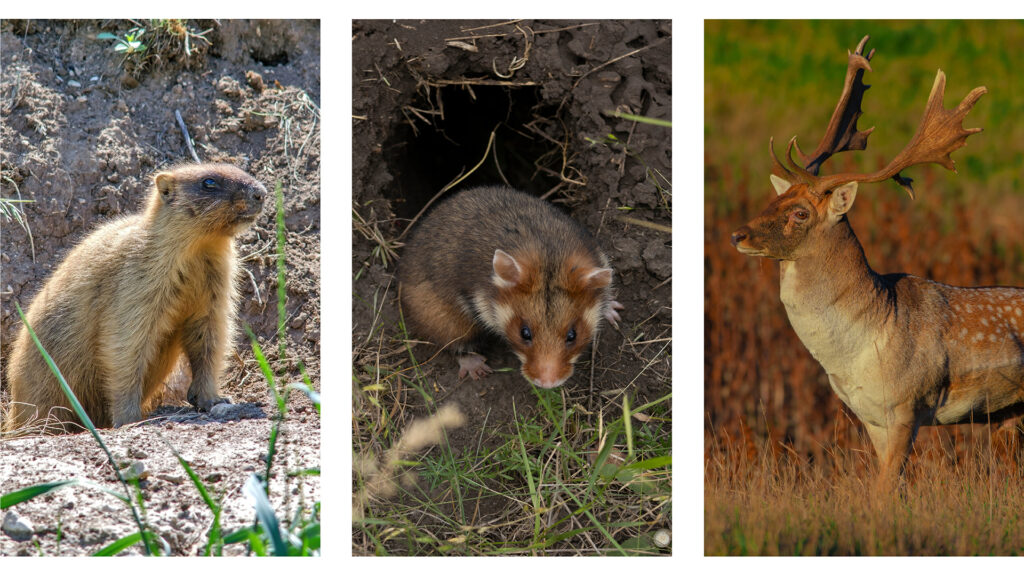
A multi-stage release process
Guided by field observations and scientific recommendations, the Rewilding Ukraine team have carefully adapted its methods over the past four years to give hamsters the best possible start in their new home on the Tarutino Steppe.
Firstly, they prepare the release site: artificial burrows are dug (this year using fully biodegradable materials), fencing is installed, and an enclosure is built. After this, the hamsters are carefully transported from partner organisations. Once delivered, the rodents are settled into the burrows, where they are closely monitored. They are given special attention over the first few days, as this is the riskiest period – hamsters have a combative nature and often clash over territory. After the animals are judged to have acclimatised, they will be released into the wild.
“The overriding priority is to give the hamsters the best chance of survival in the crucial days and weeks after they return to the wild,” explains Mykhailo Rusin, a specialist at the Kyiv Zoo’s Restoration and Reintroduction Centre and the founder of the Hamster Rescue Centre. “This is why a specially adapted release process involving the controlled enclosure and close monitoring is essential.”
Safeguarding the future of hamsters
The European hamster once inhabited steppes and forest-steppes across Europe, and was resident in most of Ukraine. But today it has almost disappeared in nature as a result of habitat destruction, environmental pollution, and targeted extermination as an agricultural pest. In 2009 it was listed in the Red Book of Ukraine, while it also has critically endangered status on the IUCN’s Red List.
Kyiv Zoo has been breeding and returning European hamsters to the wild for a number of years as part of a programme to restore populations of rare and endangered species across Ukraine. On the Tarutino Steppe, the rodents will benefit from environmental protection and an increasingly wild landscape.
The ongoing war in Ukraine, which has led to the loss and degradation of many areas of steppe and grassland in the country, poses an added threat to hamsters. In these dark times for the country, the Tarutino Steppe – which is located well away from the conflict area – can become a sanctuary for hamsters and other wildlife and could help with post-war nature recovery efforts.
The healing power of nature
In addition to restoring the vitality and functionality of ecosystems, rewilding in Ukraine is also helping people return to health. This year, the Rewilding Ukraine team has started a “Nature for Veterans” initiative, with the aim of helping Ukrainian soldiers and their families heal by immersing them in the recovering nature of the Ukrainian Danube Delta, located to the south-west of the Tarutino Steppe. This reflects the broader aim and value of rewilding: ensuring nature recovery enriches human lives and livelihoods too.
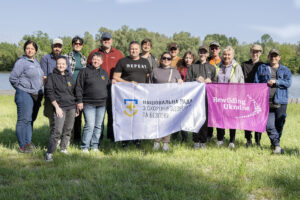
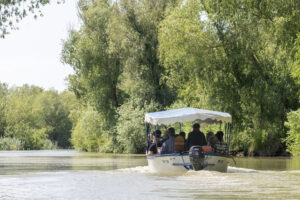
Invaluable support
The releases of hamsters and other animals on the Tarutino Steppe are part of Rewilding Europe’s wider ambition to demonstrate that large-scale nature recovery can revive natural processes, enhance biodiversity, and create meaningful opportunities for people across Europe.
Rewilding Europe’s work in its rewilding landscapes is supported by a wide range of highly valued partners. We would particularly like to acknowledge those providing core funding – notably the Ecological Restoration Fund, the Dutch Postcode Lottery, WWF-Netherlands, and Arcadia. Their longstanding support plays a critical role in enabling us to deliver and scale up rewilding impact.

